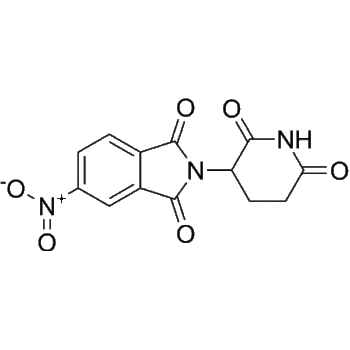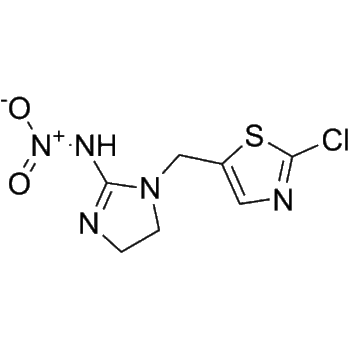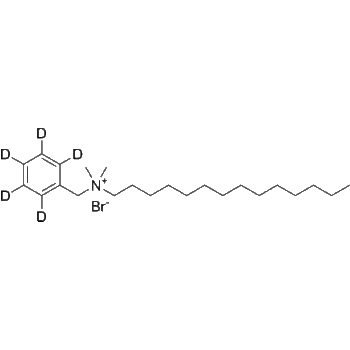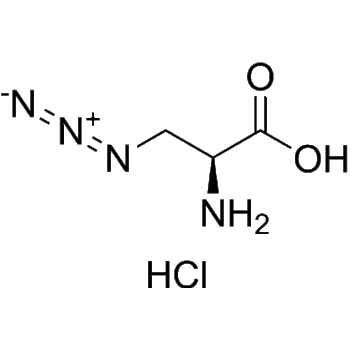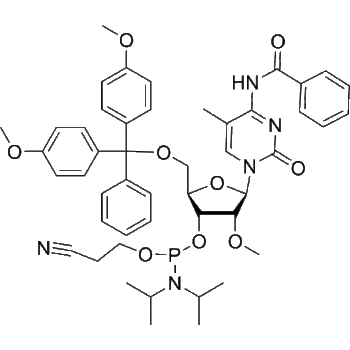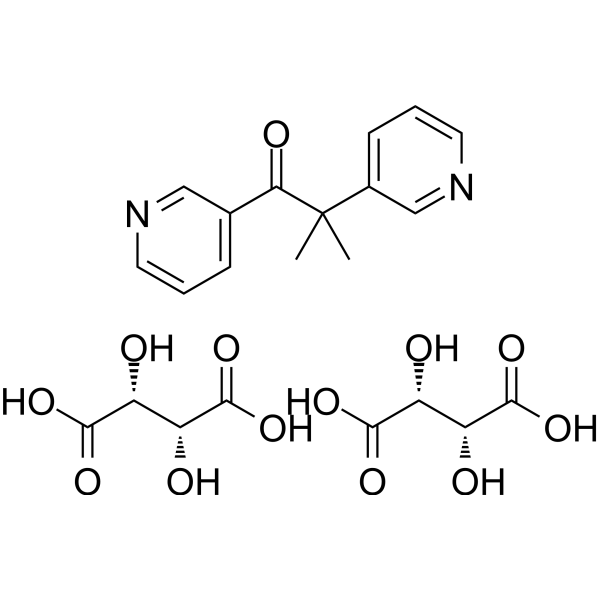
Download Files:
Metyrapone (Tartrate)
SKU
HY-B1232A-Get quote
Category Reference compound
Tags Autophagy;Cytochrome P450;Endogenous Metabolite;mTOR, Autophagy;Metabolic Enzyme/Protease;PI3K/Akt/mTOR, Endocrinology; Neurological Disease
Products Details
Product Description
– Metyrapone (Su-4885) Tartrate is a potent and orally active 11β-hydroxylase inhibitor and an autophagy activator, also inhibits the production of aldosterone. Metyrapone Tartrate inhibits synthesis of endogenous adrenal corticosteroid, decreases glucocorticoid levels, and also affects behavior and emotion. In addition, Metyrapone Tartrate increases the efficiency of autophagic process via downregulation of mTOR pathway, and interacts with Pseudomonas putida cytochrome P-450. Metyrapone Tartrate can be used for researching Cushing’s syndrome and depression[1][2][3][4][5].
Web ID
– HY-B1232A
Shipping
– Room temperature
Applications
– Cancer-programmed cell death
Molecular Formula
– C22H26N2O13
References
– [1]Holczer M, et al. A Comprehensive Systems Biological Study of Autophagy-Apoptosis Crosstalk during Endoplasmic Reticulum Stress. Biomed Res Int. 2015;2015:319589.|[2]Roozendaal B, et al. Dose-dependent suppression of adrenocortical activity with metyrapone: effects on emotion and memory. Psychoneuroendocrinology. 1996 Nov;21(8):681-93.|[3]Jahn H, et al. Metyrapone as additive treatment in major depression: a double-blind and placebo-controlled trial. Arch Gen Psychiatry. 2004 Dec;61(12):1235-44.|[4]Daniel E, et al. Effectiveness of Metyrapone in Treating Cushing’s Syndrome: A Retrospective Multicenter Study in 195 Patients. J Clin Endocrinol Metab. 2015 Nov;100(11):4146-54.|[5]Peterson JA, Ullrich V, Hildebrandt AG. Methyrapone interaction with Pseudomonas putida cytochrome P-405. Arch Biochem Biophys. 1971 Aug;145(2):531-42.
CAS Number
– 908-35-0
Molecular Weight
– 526.45
SMILES
– CC(C)(C(C1=CC=CN=C1)=O)C2=CC=CN=C2.O=C([C@@H]([C@H](C(O)=O)O)O)O.O=C([C@@H]([C@H](C(O)=O)O)O)O
Clinical Information
– Launched
Research Area
– Endocrinology; Neurological Disease
Solubility
– 10 mM in DMSO
Target
– Autophagy;Cytochrome P450;Endogenous Metabolite;mTOR
Pathway
– Autophagy;Metabolic Enzyme/Protease;PI3K/Akt/mTOR
Product type
– Reference compound
Disclaimer: All products are for Research use only unless clearly stated otherwise on the product datasheet. Datasheets provided on the website are drafts for reference purpose only and you are requested to always refer to the hard copy included in the kit for your experimentation. Agdia Products are available for delivery only in Canada.
